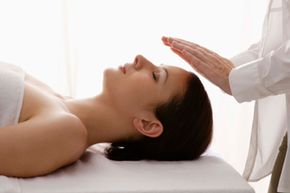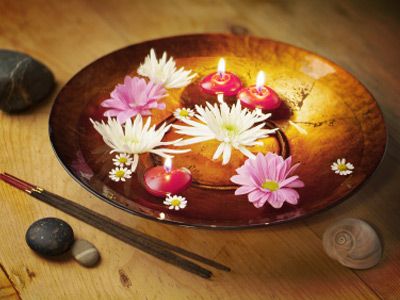When aspiring doctors head off to school, they can expect to take a lot of science classes. These courses, combined with rotations and residencies, prepare them for the practice of evidence-based medicine -- that is, medical procedures and treatments that have been validated by the scientific method through rigorous, controlled testing. Alternative medicine refers to practices that fall outside that realm and includes ayurveda, acupuncture, massage, magnet therapy and herbal remedies such as ginseng, gingko and echinacea. Alternative medical practices usually include an emphasis on spirituality, natural elements and the mind-body connection. More than 80 million adults in the U.S. have tried some form of these therapies [source: Broad].
The procedures that constitute evidence-based medicine are constantly changing, as studies are always proving that new treatments are effective. The fact that these alternative therapies remain "alternative" indicates that there isn't any scientific data to support their efficacy. While it can be harder to get funding to study an alternative therapy, the studies that have been done on alternative medical therapies have received the thumbs-down from the scientific community. Most of these studies had serious defects in methodology, sample size or interpretation of data [sources: Sampson, Broad]. Acupuncture is the one of the few alternative medical practice to receive some credibility; though studies have shown it's effective at reducing pain, doctors don't know how or why.
Advertisement
This lack of scientific evidence does little to dissuade people from trying alternative therapies, and it certainly won't convince those who have had success with one of the treatments. It's possible that some of the therapies work for some people -- St. John's wort, for example, is thought to be worth a try in dealing with mild depression -- but there's no evidence that any treatment should be a substitute for doctor's orders. At best, these alternative therapies may work because of the placebo effect; people see the results because they want to.
If you decide to try alternative medicine, you should speak to a doctor beforehand, even if that seems counterintuitive to the idea of trying something outside of the medical community. Many alternative therapies have side effects and can cause negative interactions with other medications. It's also important to be on your guard for quackery. While there may be a stereotype that major pharmaceutical companies are out for money, the alternative medical field is just as full of people out to make a quick buck. In particular, natural dietary supplements aren't subject to approval by the U.S. Food and Drug Administration (FDA), so there's extra reason for caution. In recent years, up to 75 percent of gingko biloba supplements have been shown to not contain the stated percentage of the active ingredient [source: Broad].
To learn more about alternative medicine, see the links on the next page.
Advertisement

